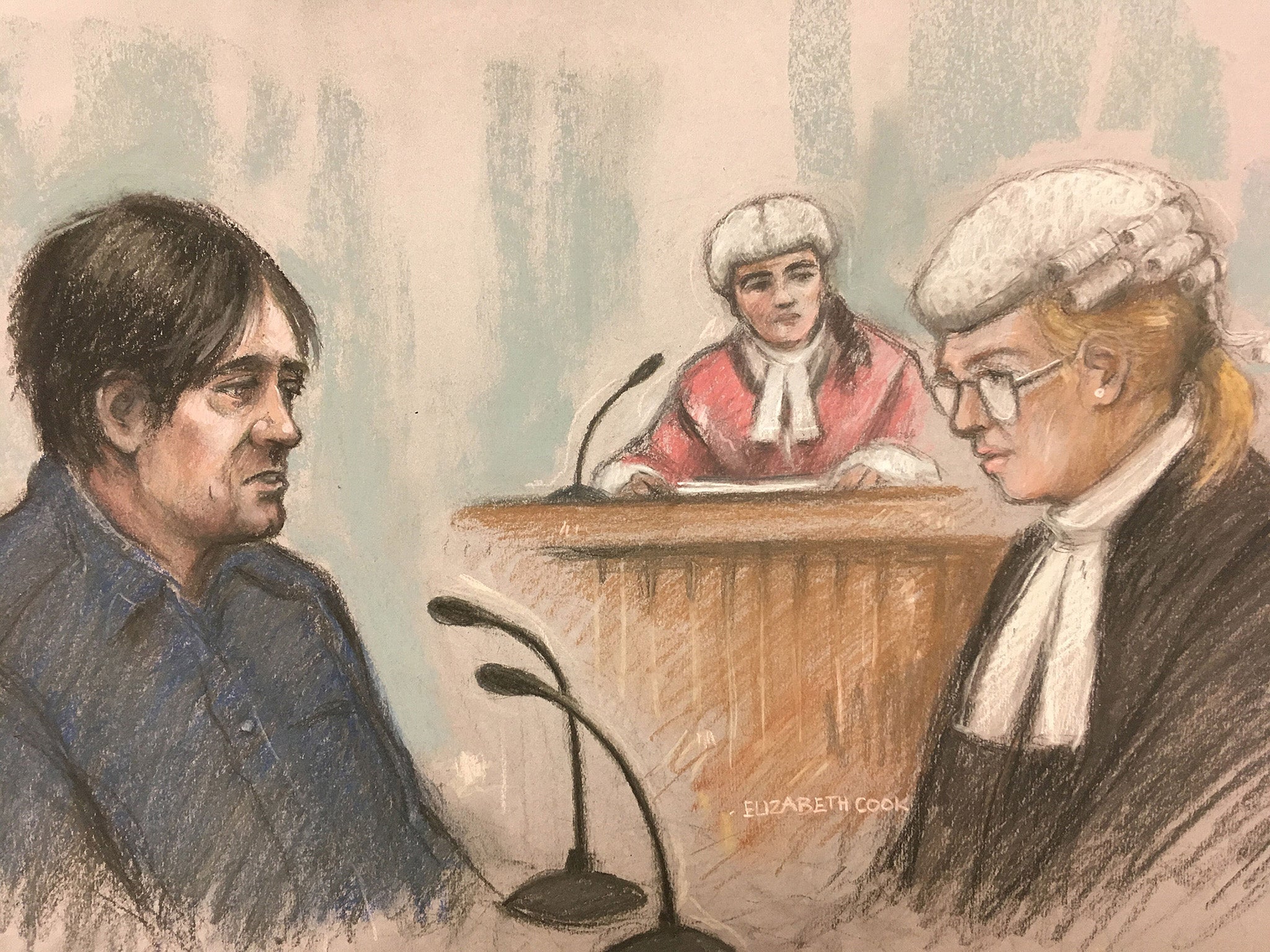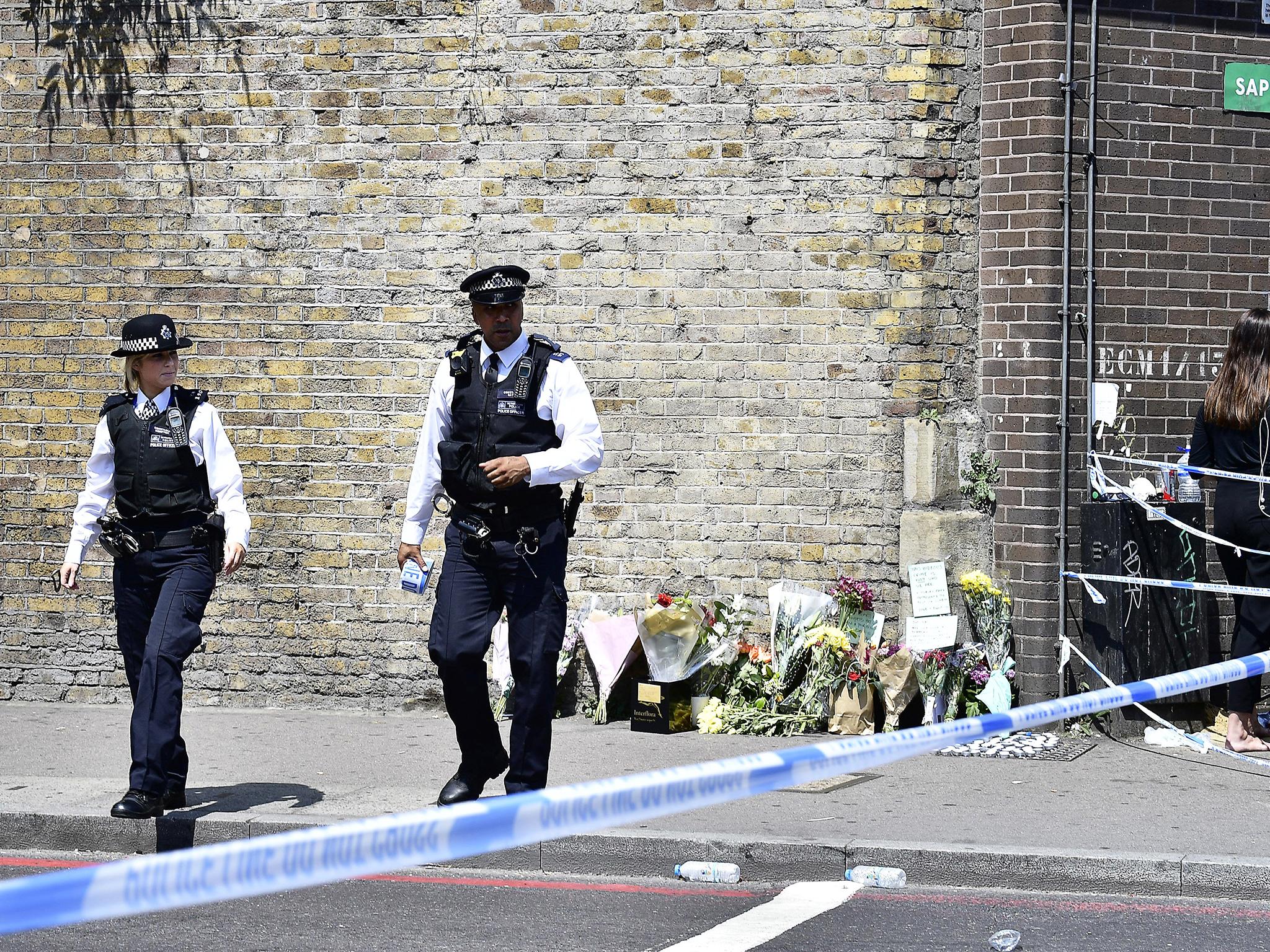Finsbury Park attack: Terrorists could launch atrocities 'within hours of reading extremist material' online, police warn
‘The speed with which Osborne self-radicalised – just three weeks – was frightening and clearly much more needs to be done to challenge the anti-Muslim and anti-immigrant hate that exists online’
Police have warned that extremist online material could drive people to carry out terror attacks within hours as they struggle to combat the risk of “self-radicalisation”.
The alarm was raised in the wake of the conviction of Finsbury Park attacker Darren Osborne, who became “brainwashed” after watching a drama on sexual abuse in Rochdale.
Evidence presented to Woolwich Crown Court showed the father-of-four accessing posts and articles by far-right leaders on subjects including grooming gangs, terrorism, rape, Jeremy Corbyn and Sadiq Khan.
In less than a month, he turned from an unremarkable if troubled father-of-four to a man hell-bent on killing as many Muslims as possible in a van rampage in London.
Osborne, 48, faces life imprisonment after being convicted of murdering 51-year-old Makram Ali and attempting to kill Muslim worshippers who had been attempting to help the grandfather after he collapsed.
The atrocity in the early hours of 19 June was swiftly condemned as a terror attack by Theresa May, who described it as “every bit as sickening as those which have come before” in reference to the Isis-inspired massacres in Westminster, Manchester and London Bridge.

Police admit that the “unpalatable” material Osborne consumed in the run-up to the attempt would be difficult to remove or prosecute as it “doesn’t cross the threshold” to be considered a criminal or terrorist offence.
Commander Dean Haydon, of the Metropolitan Police, called on internet firms themselves to tackle dangerous content while cautioning over its possible impact.
“We have to be alive to the fact that people are accessing this material and they are using it to self-radicalise, and that’s what happened in this case,” said the head of Scotland Yard’s counter-terrorism command.
“It is out there, people can access it and – as we’ve seen in this case – it certainly affected Osborne in the way it did and certainly played a key part in his radicalisation.“
It came after a report by the Independent Reviewer of Terrorism Legislation warned that “remote radicalisation” was driving a rising threat to Britain.
Max Hill QC, the Independent Reviewer of Terrorism Legislation, said the trend was making atrocities harder to detect, adding: “Some of those who committed terrorist murders on our streets may have reached their murderous state having been influenced by what they read and what they see online, just as much as by whom they meet.”
Devices found at Osborne’s family home near Cardiff showed frequent searches for English Defence League founder Tommy Robinson, as well as figures including Britain First’s Jayda Fransen and Paul Golding.

Commander Haydon declined to call EDL’s Mr Robinson a ”radicaliser”, but said: “There is material out there linked to some of the groups connected to him that quite clearly has been an influencer in this case.”
Police believe Osborne was radicalised in less than a month – the period between him watching the Three Girls drama and launching the deadly attack on 19 June.
“He has become, what I would call radicalised, within a period of three to four weeks in the lead-up to the attack,” Commander Haydon said.
“It was clear that in the space of only a few weeks, Osborne had developed a warped and twisted view to such a degree that he was prepared to plan and carry out this attack.”
The officer cautioned that it demonstrated “that individuals can become radicalised really, really quickly”, adding: “To be honest, some individuals could look at material today and decide to go and do an attack later on this evening.
”Some of this material is easily accessible, so we have to look at the role of the internet.“
The neo-Nazi terrorist group National Action became the first far-right organisation to be banned in the UK in 2016, being followed by its subsidiaries Scottish Dawn and NS131.
The proscription was followed by waves of arrests and several trials are ongoing, but other affiliates are believed to be operating and other – less extreme – far-right groups are operating unhindered.
Commander Haydon described the far-right as an “emerging threat” and said Scotland Yard was devoted to tackling all forms of extremism, which are encompassed under the Government’s Contest counter-terror strategy.
Campaigners are calling for security services to ensure they have anti-Islam extremism in their sights to stop online material “enabling” further bloodshed.
Nick Lowles, chief executive of Hope Not Hate, said the Finsbury Park attack highlighted the role of far-right figures “propelling anti-Muslim hatred into the mainstream”.
“We have long argued that the authorities have not properly understood the nature of anti-Muslim extremism and rhetoric and the potential impact it can have on the Darren Osbornes of this world,” he added.
“The speed with which Osborne self-radicalised was frightening – literally in just three weeks – and clearly much more needs to be done to challenge the anti-Muslim and anti-immigrant hate that exists online.
“In fact, it’s beyond time for the authorities to take online hate rhetoric seriously.”
Stand Up To Racism, which held a vigil at Finsbury Park Mosque following the attack, said the case should be a “wake-up call”.

Joint convenor Sabby Dhalu said: “The far right needs a higher level of vigilance and their propaganda needs opposing by all who value our multicultural society.”
The Finsbury Park case was prosecuted as a terrorist offence because prosecutors said Osborne’s actions aimed to advance a political purpose, citing a handwritten note found in the van and his rants to police.
Tell Mama, a campaign group that records Islamophobic attacks, said hatred was “being allowed to fester unchallenged”.
Director Iman Atta said: “Osborne was consuming far right anti-Muslim hate extremist material – this shows us the pervasiveness of anti-Muslim hate online which we all have a duty to challenge.”
Harun Khan, secretary general of the Muslim Council of Britain said the Finsbury Park attack was the “most violent manifestation of Islamophobia yet” in the UK.
“We cannot be complacent and regard this as a one-off terrorist incident,” he added.
“The case tells us that we must all exercise caution when tempted to stigmatise any group of people, regardless of colour, creed or community.”
Bookmark popover
Removed from bookmarks